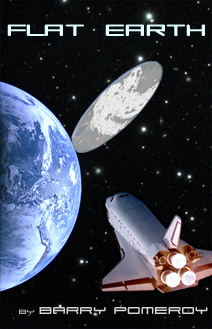In her condemnation of contemporary novels, Linda Miller’s “How Novels Came to Terms with the Internet,” makes several arguments that many novelists—actually she argues all novelists worthy of the name—avoid the implications of the internet in their work by confining their setting to times of places where the internet would not be possible. To prove this she examines several recent novels which show some interest in technological change and its effect on society.
For me, that is not the most interesting part of her argument. I am more intrigued in the one paragraph she devotes to those works in which the internet is a major part of how they work. She briefly and offhandedly mentions cyberpunk but carries her analysis of such works no further. I think her dismissal of speculative or science fiction is merely a symptom of the broader misunderstanding of science fiction.
Miller engages in desperate mental gymnastics to make her argument stick that there is no real fiction that deals with the internet. In her mind, it seems, speculative and science fiction belong somewhere between joke books in the bathroom and masturbation narratives for teen males.
Maybe part of this is related to the age old discomfort between the literary crowd and the science people. These groups see themselves at loggerheads, although when it comes to writing, they are pulling at the same taffy. That literary people would taint themselves with science or investigations of the possible is seen as a betrayal of literary values, such as necessity of plot at the expense of logistics. For the science people, ignoring the physical world is a betrayal of the physical reality that circumscribes what is possible.
There is seemingly no way that they can meet. Certainly when I am writing science fiction novels and stories I tend to avoid what my friends tell me everyone is interested in. Jealousy, dramatic confrontations, hatred and spite, impassioned behaviour that would result in a peace bond if it happened in real life. That is what people really care about, apparently.
The science fiction I am interested in are stories of the possible, and I think I have the same criteria for literary work. Once the  original premise is laid, what are the possibilities? I refer to my science fiction novels as project novels, in that they are concerned with real construction possibilities in space given our contemporaneous technology, or at least the tech that is under development. Rather than focusing on petty human rivalries, I paint humanity as generally interested in human advancement and working towards that goal, and my characters have little interest in wages. They are working for the project, and working together. The conflict comes, of course, but it is the natural world as antagonist, or people whose natural cooperative tendencies have been corrupted by evil corporate avarice, or anti-science religious fear mongering.
original premise is laid, what are the possibilities? I refer to my science fiction novels as project novels, in that they are concerned with real construction possibilities in space given our contemporaneous technology, or at least the tech that is under development. Rather than focusing on petty human rivalries, I paint humanity as generally interested in human advancement and working towards that goal, and my characters have little interest in wages. They are working for the project, and working together. The conflict comes, of course, but it is the natural world as antagonist, or people whose natural cooperative tendencies have been corrupted by evil corporate avarice, or anti-science religious fear mongering.
That is not to say I ignore character, but I think there are more important things to talk about than petty rivalries and emotive gushing. There are people working in science who devote their entire careers to a tiny portion of one scientific question and we need to pay some homage to their sacrifice. They devote their mental work and a vast portion of their lives to advancing the cause of humanity. Let’s celebrate their accomplishments as well, instead of just focusing on mass murderers and sports.
